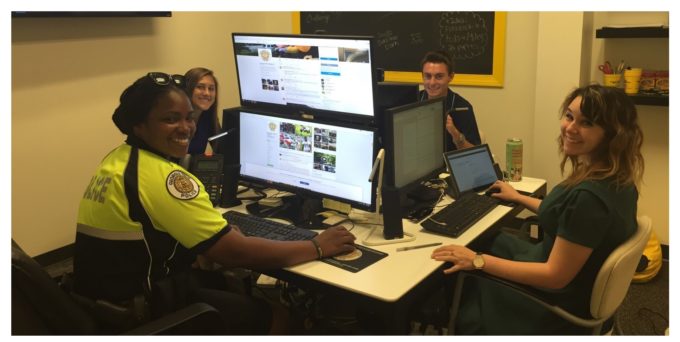Digital Futures……..

 I attended a conference today with some senior police leaders to discuss how we take police use of social media forwards. Following on from the riots, there is a real impetus behind this work, and the genie is now well and truly out of the bottle. It was really refreshing to see a room full of senior officers with an understanding of the key issues and a desire to improve the current situation.
I attended a conference today with some senior police leaders to discuss how we take police use of social media forwards. Following on from the riots, there is a real impetus behind this work, and the genie is now well and truly out of the bottle. It was really refreshing to see a room full of senior officers with an understanding of the key issues and a desire to improve the current situation.
There is an emerging consensus of the big business areas where we need to integrate social media into our traditional policing response, they are;
- Engagement
- Intelligence
- Investigation
Engagement seems relatively obvious, police officers should be taking every opportunity, and using every medium to talk to our communities, listen to them, and allow the public to influence how we deploy our resources. In this regard, social media seems to be an open goal. I am followed on twitter by around 7700 people, many of them from Wolverhampton, and as the Superintendent for the City, this gives me an opportunity to talk to people every day, in a way that would not be possible if I didn’t use social media. The opportunities are endless, and in 2012 we ought to be using social media routinely to talk to people, there are no excuses not to.
Intelligence gained from social media presents some new challenges to us in terms of the way we have traditionally worked, but the opportunities outweigh these many times over. In the aftermath of the riots, people were tripping over themselves to tell the police who was responsible, and we had to find ways of getting the information into our systems. We need to protect people who give us information, and we need to able to verify whether or not the information is true. Our traditional model for turning information into intelligence, the National Intelligence Model, simply does not work quickly enough to process information in the age of instant media. This is not insurmountable but, it does mean that that we are having to think about things differently.
Investigation in the digital age is changing rapidly. When you are investigating serious crimes, speed is of the essence. We often refer to the golden hour, and the evidence gathered in the immediate aftermath is often crucial to solving a crime. These days, the golden hour often happens digitally. People take photos and videos on mobile devices, provide commentary on the scene and start to speculate on motives and potential offenders online. Police need to be capturing all of this information, at the same time as containing the physical crime scene. again, there are risks, but we simply have no option than to adapt our processes and educate our investigators.
This is of course not a complete list of all of the opportunities and threats that exist in the digital world for policing, but it is a good start. The ACPO business leads for the areas listed above were all at the meeting today and there is clear commitment from them to make the necessary progress.
I am really optimistic for UK policing and pleased that the hard work of some of the early adopters of social media is starting to bear fruit. Watch this space…….


